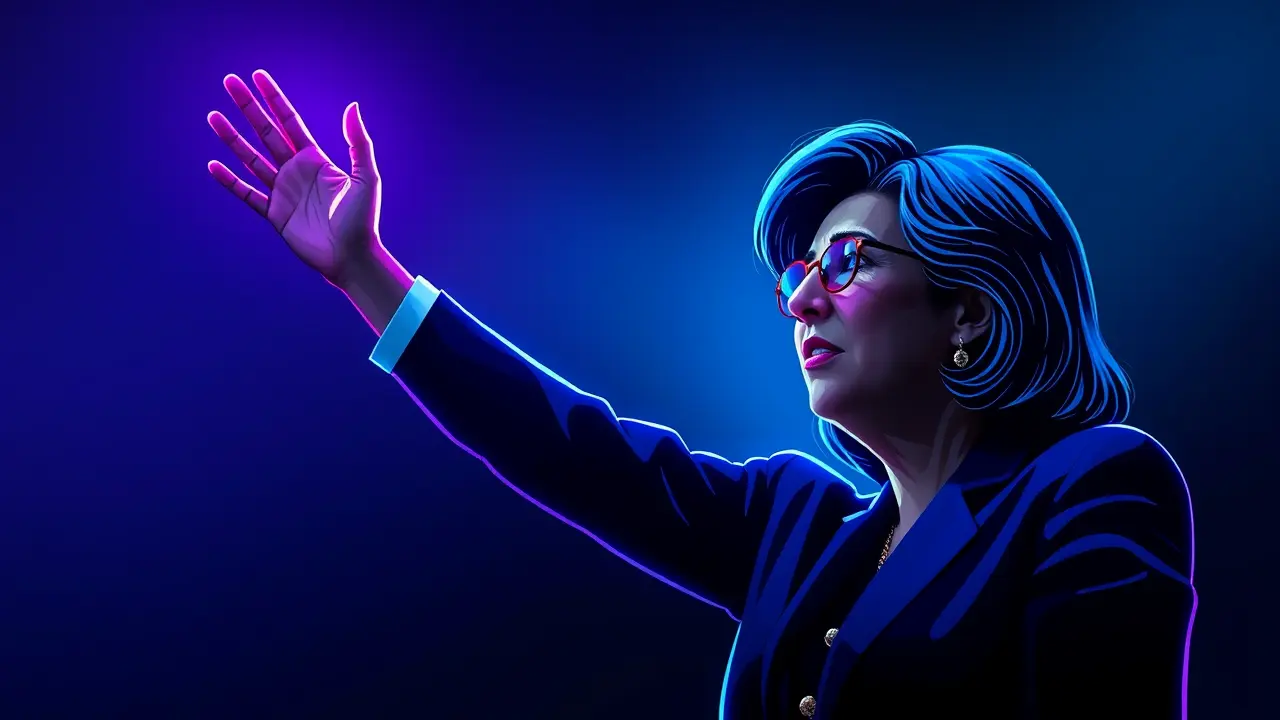Venezuelan opposition leader Machado dedicates Nobel to Trump.
In a move that underscores the intricate and often controversial interplay between international diplomacy and domestic political struggles, Venezuelan opposition leader Maria Corina Machado dedicated her Nobel Peace Prize on Friday not only to the long-suffering people of her nation but, with striking political calculus, to U. S.President Donald Trump, lauding his 'decisive support' for Venezuela's pro-democracy movement. This singular act, announced via social media with the declaration, 'We are on the threshold of victory and today, more than ever, we count on President Trump, the people of the United States.', is far more than a simple gesture of gratitude; it is a profound geopolitical statement that reverberates through the halls of power in Caracas, Washington, and beyond, recalling historical precedents where Western endorsement has simultaneously bolstered and complicated the legitimacy of dissident movements. Machado, a seasoned and often polarizing figure who has tirelessly campaigned against the authoritarian regimes of both Hugo Chávez and Nicolás Maduro, finds her moment of international recognition inextricably linked to the foreign policy of an American president whose 'maximum pressure' campaign—a relentless matrix of sanctions targeting Venezuela's vital oil industry and government officials—has been a cornerstone of the opposition's strategy to cripple the Maduro government's economic lifelines.Yet, this very alliance invites a deeper, more critical analysis: while Trump's unwavering stance has undoubtedly provided the opposition with crucial leverage and a powerful external patron, it also opens Machado to potent accusations from the Maduro regime and its allies of being a foreign puppet, a charge that has historically undermined indigenous pro-democracy efforts from Iran in 1953 to Chile in the 1970s, where overt U. S.backing ultimately tarnished the very causes it sought to advance. The Nobel Committee's decision to honor Machado, while celebrated in Western capitals, will be framed within Venezuela's state-controlled media not as a triumph of democratic ideals but as an imperialist reward for collaboration, a narrative that Maduro will exploit to consolidate his base and portray the conflict as a patriotic struggle against foreign aggression.Furthermore, the dedication places the volatile Trump administration squarely at the center of Venezuela's future, raising critical questions about the sustainability of a political solution that is so dependent on the whims of a U. S.president known for his transactional approach to foreign policy; should American support waver or shift following an election, the opposition could find its 'threshold of victory' suddenly vanishing. Expert commentators from the Council on Foreign Relations and the Brookings Institution would likely argue that while external pressure is a necessary component in confronting entrenched authoritarianism, lasting change must be rooted in broad-based, domestic consensus and careful diplomatic engagement with regional powers and potential mediators, a complex tapestry of negotiation that a singular focus on Trump's support may inadvertently unravel. The road ahead for Venezuela remains perilously fraught, with the nation's profound humanitarian crisis—marked by hyperinflation, mass exodus, and crippling shortages—serving as the tragic backdrop for this high-stakes political drama, where Machado's Nobel, intended as a beacon of hope, may also cast a long and complicated shadow, defining her legacy not just as a champion of liberty but as a figure whose ultimate success or failure will be measured by her ability to navigate the treacherous waters of international patronage and the unforgiving realities of a nation desperate for peace and self-determination.
It’s quiet here...Start the conversation by leaving the first comment.
© 2025 Outpoll Service LTD. All rights reserved.
